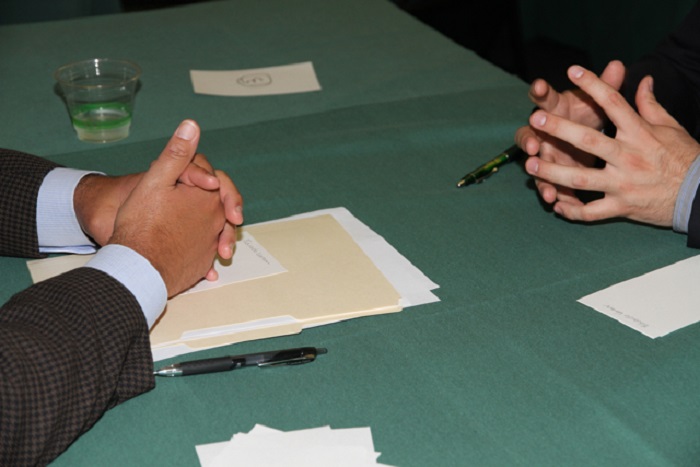
Once the interview is over and you’ve landed the job, it’s smooth sailing from here on out, right?
Not exactly.
If your job includes communicating with clients and closing deals, you’ll have to go through the job interview process over and over again. Luckily, you can translate the skills that got you in the door to help your sales shoot through the roof. (Click here to tweet this thought.) Here are a few interview situations and how you should handle them:
The interviewer asks about a particular skill, and you don’t have it
When an interviewer asks you about a skill you don’t have, you have three choices: you can misrepresent yourself and hope you don’t get caught, say you don’t have the skill and wish them luck on their candidate search, or you can emphasize a related skill you have while expressing your eagerness to learn and quick mastery of new material.
The first choice is not only pretty unethical, but also a great way to burn bridges within your industry. If the skill is important enough to be mentioned in the interview, it’s probably used frequently; you’re going to get nailed on it sooner or later.
Compare this with a prospect asking about a product you don’t have or a service you don’t provide. They need 24/7 communication, and you have a strict “no work on weekends” policy. You can say you’re always available, but if it’s important enough for them to ask in the interview, you can bet your phone will be ringing on a Saturday. Are you willing to answer it?
The second choice is more ethically balanced, but doesn’t do your business any favors. You came into the job interview for a reason and did your research. Unless there’s a huge miscommunication on the nature of the business, you should have something to offer.
Few business “soul mates” exist, so if you bow out the moment you think you can’t reach their ideal, you’re going to be turning away perfectly good business. Ask questions to probe deeper; they may be asking for a particular service or product, but what they really need is for you to fill a need. If you can discover what the client needs, you may be able to offer something of your own that would make you a perfect match.
The interviewer asks a straightforward question, and you need to set yourself apart from the competition
If an interviewer asks you a factual question, and you know the answer is on your resume or in your cover letter, it’s not because they’ve forgotten. They’re giving you an opportunity to tell them how that fact makes you the perfect candidate.
Interviewer: “It says here that you studied at Prestigious University.”
Wrong answer: “Yep.”
You just blew an opportunity to tell the interviewer how getting the Perfect Degree at Prestigious University and your school involvement makes you the best person for the job. On the other hand, the interviewer might bring up something on the resume because he or she is confused about it, and it may be broaching a delicate topic.
Interviewer: “I see a two year gap between your jobs at First Company and Second Company.”
Wrong response: “That’s correct. I did not work in 2010 and 2011.”
See the pattern? A prospect may ask about any number of things, and it’s your job to spin everything in a positive light.
Prospect: “It says on your site that you were named the Top Widget Seller of the Decade.”
Wrong response: “Yep.”
Right response: “It sure is! We competed against thirty-four other widget manufacturers and were rated in three different areas including customer service satisfaction. You mentioned earlier you had trouble with your last supplier and their bad attitude. I’m glad we can show you have a track record of happy customers.”
Read more: 3 Tough Job Interview Situations and How to Handle Them














